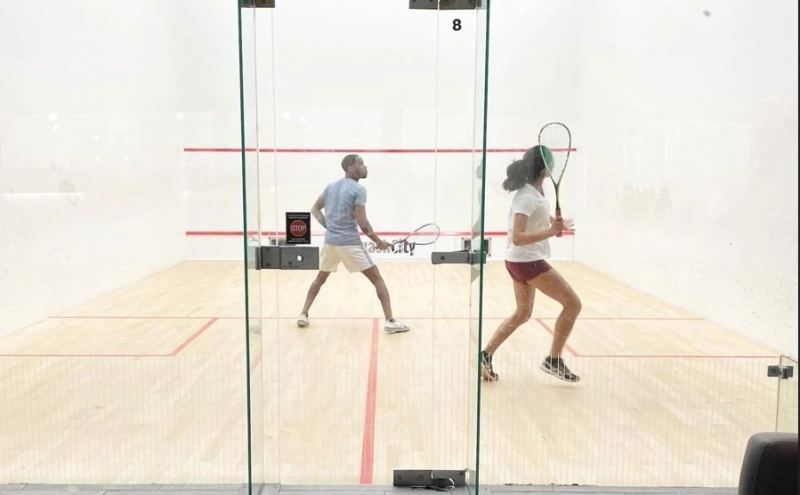Squash and racquetball, two racquet sports that often find themselves in the same conversation, have distinct characteristics that set them apart. If you're a sports enthusiast looking to dive into the world of racket games, understanding the nuances between squash and racquetball is crucial. Peter Nicol established Nicol Squash club in New York which offer squash nyc lessons, courts and leagues.
Let's unravel the differences and appreciate the unique aspects of each sport.
Origins and History
Squash boasts a rich history, originating in England in the early 19th century. The game evolved from variations of racquet sports played in prisons and schools. On the other hand, racquetball emerged in the mid-20th century in the United States, influenced by sports like handball and squash.
Court Dimensions
The dimensions of the court play a significant role in distinguishing these sports. Squash courts are long and narrow, emphasizing lateral movement. In contrast, racquetball courts are more expansive, allowing players greater freedom of movement.
Equipment Variations
The choice of racket in both sports significantly impacts gameplay. Squash rackets are smaller and heavier, designed to withstand the intense rallies characteristic of the game. Racquetball rackets, comparatively larger and lighter, cater to the faster-paced nature of the sport.
Gameplay Dynamics
Scoring differentiates the two games. Squash employs a point-a-rally scoring system, where only the server can score. Racquetball, in contrast, uses a traditional scoring system, where points can be won regardless of who serves.
Movement and Fitness Impact
Squash demands intense physical exertion due to the confined court and continuous play. The sport challenges players with rapid directional changes and sprints. Racquetball, while physically demanding, allows for more lateral movement, emphasizing agility and reflexes.
Popularization and Global Reach
Squash enjoys global popularity, with strong followings in Europe, Asia, and North America. Racquetball, while prominent in the Americas, hasn't reached the same level of global recognition.
Skill Sets Required
Squash players need precise ball control, endurance, and strategic thinking. Racquetball places a premium on quick reflexes, agility, and shot accuracy.
Community and Culture
Squash has a tight-knit community with a strong emphasis on sportsmanship and tradition. Racquetball's culture is dynamic, reflecting the fast-paced nature of the game.
Professional Leagues and Tournaments
Squash enthusiasts can follow prestigious events like the PSA World Championships, while racquetball fans eagerly anticipate tournaments like the International Racquetball Tour (IRT) events.
Strategy and Tactics
Squash strategy involves controlling the "T" position and dictating the pace. Racquetball tactics include strategic serving and maintaining court position for optimal shot opportunities.
Injury Risk and Prevention
Squash players face potential injuries like ankle sprains and muscle strains due to the intense physical demands. Racquetball players should be wary of shoulder and arm injuries from repetitive motion.
Appeal to Different Audiences
Squash's refined nature appeals to a diverse audience, including those who appreciate strategic gameplay. Racquetball's faster pace attracts individuals seeking an adrenaline rush on the court.
Squash vs. Racquetball: A Personal Perspective
In my journey exploring racket sports, I've found a deep appreciation for the unique charms of both squash and racquetball. Squash's elegance and precision have captivated me, while racquetball's fast-paced intensity provides a thrilling experience.
Conclusion
In conclusion, while squash and racquetball share similarities as racket sports, their differences offer distinct playing experiences. Whether you prefer the strategic finesse of squash or the high-energy rallies of racquetball, both sports provide a fulfilling and engaging way to stay active.



